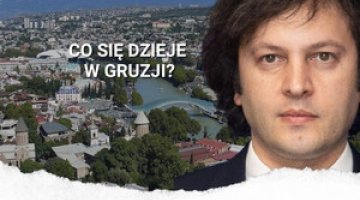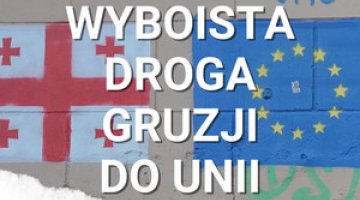Georgia: The war of 2008 is the subject of a political struggle
On 10 April, Georgia’s Prime Minister Bidzina Ivanishvili signalled the need for an investigation into the outbreak of the war between Georgia and Russia in 2008; the Georgian government of the time’s responsibility; and whether war crimes were committed during the course of the conflict. The latter question, as he stated, is part of Georgia’s obligation to the International Criminal Court in the Hague (ICC). Ivanishvili said that it had been “unjustifiable to start military actions before Russian [troops] crossed into Georgian borders. ”In so doing, he effectively called into question Tbilisi’s previous version of events, according to which Georgia’s military actions were undertaken in response to Russian aggression. Establishing the sequence of events would be subject to investigations by the prosecutor’s office and the parliament. The Prime Minister’s statement met with criticism from President Saakashvili’s camp, who himself said he would refuse to cooperate with the investigation, and accused the Prime Minister of giving Russia “legal justification for the occupation.” The mayor of Tbilisi, Gigi Ugulava, said that the current Chief Prosecutor Archil Kbilashvili, who during the war “was sitting in his Moscow apartment”, and Bidzina Ivanishvili, who “was ready to run away and had called for a corridor [for evacuation]”, would be unable to conduct an objective investigation. On 12 April the Prime Minister declared that “I never said that Georgia was the aggressor or that it had started the war”, but he emphasised the need to “investigate and establish the truth.”
Commentary
- The Prime Minister’s statements are another chapter in the fierce battle between the ruling Georgian Dream coalition and the president’s camp. As a country that signed and (unlike Russia) ratified the Rome Statute establishing the ICC, Georgia is indeed obliged to investigate the war (an investigation was formally launched back in 2008, but it has yielded no results, mainly due to a lack of political will). At the same time, the timing and form of the government’s announcements suggest that the political context and the electoral calendar are in the forefront of its thinking. Starting an investigation, which would require the questioning of the president and other former government officials, would not only allow the government to temporarily weaken the head of state, but also to reduce the opposition’s room for manoeuvre in the longer term, as most of its leaders held prominent state positions during the conflict. This would be particularly important in view of the upcoming presidential elections scheduled for this autumn.
- The attempt to call the country’s 2008 leadership to account for the war will reflect negatively on Tbilisi’s international image. Firstly, it will strengthen the concerns (which have already been raised by representatives of the EU, the US and NATO among others) about the new authorities’ use of ‘selective justice’, i.e. the use of law enforcement in their political struggle. This development would adversely affect Georgia’s relations with the West, and in the most negative scenario could even become an obstacle to Tbilisi’s expected initialling of its Association Agreement with the EU at November’s Eastern Partnership Summit in Vilnius. In addition, the use of the war in political rivalry (regardless of the results of the investigation) is likely to contribute to the credibility of Russia’s conviction that Georgia was fully responsible for the outbreak of the conflict.





